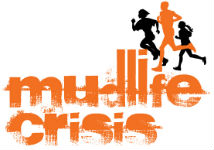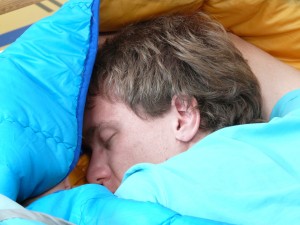Many people who are extreme go-getters in life, and even a lot of people who aren’t, like to live their lives with the idea that sleep is a waste of time. They stay up late, get up early, power chug Monster and Red Bull drinks, joke about the coffee IV in their arms, and take supplements to allow them to stay awake for maximum productivity.
Well, I’m here to tell you that this concept is less of a mantra and more of a premonition, because without sleep you’re probably not going to live very long at all.
Mark Sisson covers sleep here in his Definitive Guide to Sleep. And it’s truly a great read.
But this morning I was listening to Daniel Vitalis’s podcast interview with Dr. Edward Carome, a physicist who’s been leading the charge into the study of blue light and its effects on our ability to sleep (Is Blue Light the New Smoking?). Carome has been a leader in the world of discovering how light can affect sleep, particularly blue light, and many of the techniques that can be used to combat the effects of blue light on our sleep. He and Daniel go over how sleep helps fight cancer, the tools you can use to fight sleep issues, and more. Listen to this because it’s amazing information.
The biggest step you can take, according to Dr. Carome, is to use blue-light-blocking glasses and lenses to combat blue light’s effects on the pineal gland, the gland just at the base of the brain that helps to produce melatonin. Melatonin is known as the sleep hormone, and it’s responsible for (among many other things) promoting healthy sleep.
The problem here is that throughout our history up until the invention of the light bulb, we’ve not had nearly constant exposure to blue light as we have had after Edison did his thing. Blue light is the wavelength of light that is most common in the early day, and promotes serotonin, also known as the “feel-good” hormone. This is why blue light exposure is so frequently prescribed for people suffering from Seasonal Affective Disorder – to get them the natural hormones that will pull them out of that funk.
But blue light also turns off the production of melatonin. And blue light was not common in the natural world in the hours leading up to evening and night, when sleep is most natural. As the day moves toward evening, the amount of blue light that we get naturally diminishes and more reddish and amber tones becomes prevalent – which is why sunsets move into the orange and red spectrum so much.
The problem, then, is that incandescent light bulbs such as Edison created are more on the full-spectrum of light, including blue. And that’s not allowing our bodies to make that slow adjustment into melatonin production. Even worse, CFL bulbs and LEDs are even more focused on the blue-er side of the spectrum. LEDs in particular have a lot of blue in their light. That’s not allowing melatonin to form, and that’s ruining our sleep. Fire and candles, and other flame-based lights, are more on the amber side of things, which is why this wasn’t an issue to speak of till artificial light was so widespread.
And worst of all, the number one thing people are doing at night (at least in the US), watching TV, is chock-full of blue light. Tablets and computer screens also put out way too much blue light to be good for us.
Obviously, the number one way that light gets into our brains is through our eyes. So Dr. Carome suggests wearing amber lensed glasses for three hours before you plan to go to bed as much as possible. Apparently only a second of blue-light exposure is enough to turn off melatonin production, so keep ’em on as much as possible. And the use of amber lights in the evening is also a great idea. There are also filters for TVs, phones and tablets, and amber book lights and such that can help to alleviate a lot of this issue.
I personally find that when my sleep is disturbed or I don’t get enough of it that I get headaches of varying degrees. I have enough problems with air pressure and my sinuses that sleep issues don’t help at all either. So I’m planning on getting myself a pair of these glasses and also get them for my family as well.
I’ve been taking some other steps to better sleep as well, and since sleep is such a vitally important part of our health (yet another one that modern society is damaging, I might add), I wanted to be sure that I shared them with you.
First, I’ve been trying to stay on a specific sleep schedule as much as possible. 10:00 PM is my bedtime at the very latest. If I can be in bed by 9:30 or so, then I am a happy camper. I normally wake up at 5:00 AM to get my personal tasks for the day done before the rest of the family wakes up, so that gives me a solid seven hours of sleep. That seems to be about the right amount for me.
Second, as I alluded to above, I have some sinus issues that seem to run in the family. Using essential oils and a diffuser for a few hours (I set it up as I’m heading to bed, usually, and run it for four hours) has also helped – and that’s not only helped me but other people in the house, too, even without the diffuser being in their rooms.
Third (and related to the points about serotonin above), I’ve been trying to avoid wearing sunglasses as much as possible. Blocking the blue light that is supposed to exist during the day and bring up my serotonin levels helps me keep my activity level during the day up where it should be, so that I have a natural “coming-down” period at the end of the day and I move into the melatonin production period.
Finally, keeping my diet in the Paleo realm has helped me keep a stable blood sugar level and that helps me not have too much sugar in my system keeping me awake at night.
I will report back on the glasses thing, because this concept is fascinating to me. I can’t wait to see how this works – hopefully I won’t be too excited to sleep.
What steps do you take to ensure good sleep? Share below in the comments – and as always, I’d love for you to share this with your friends on social media, etc.







